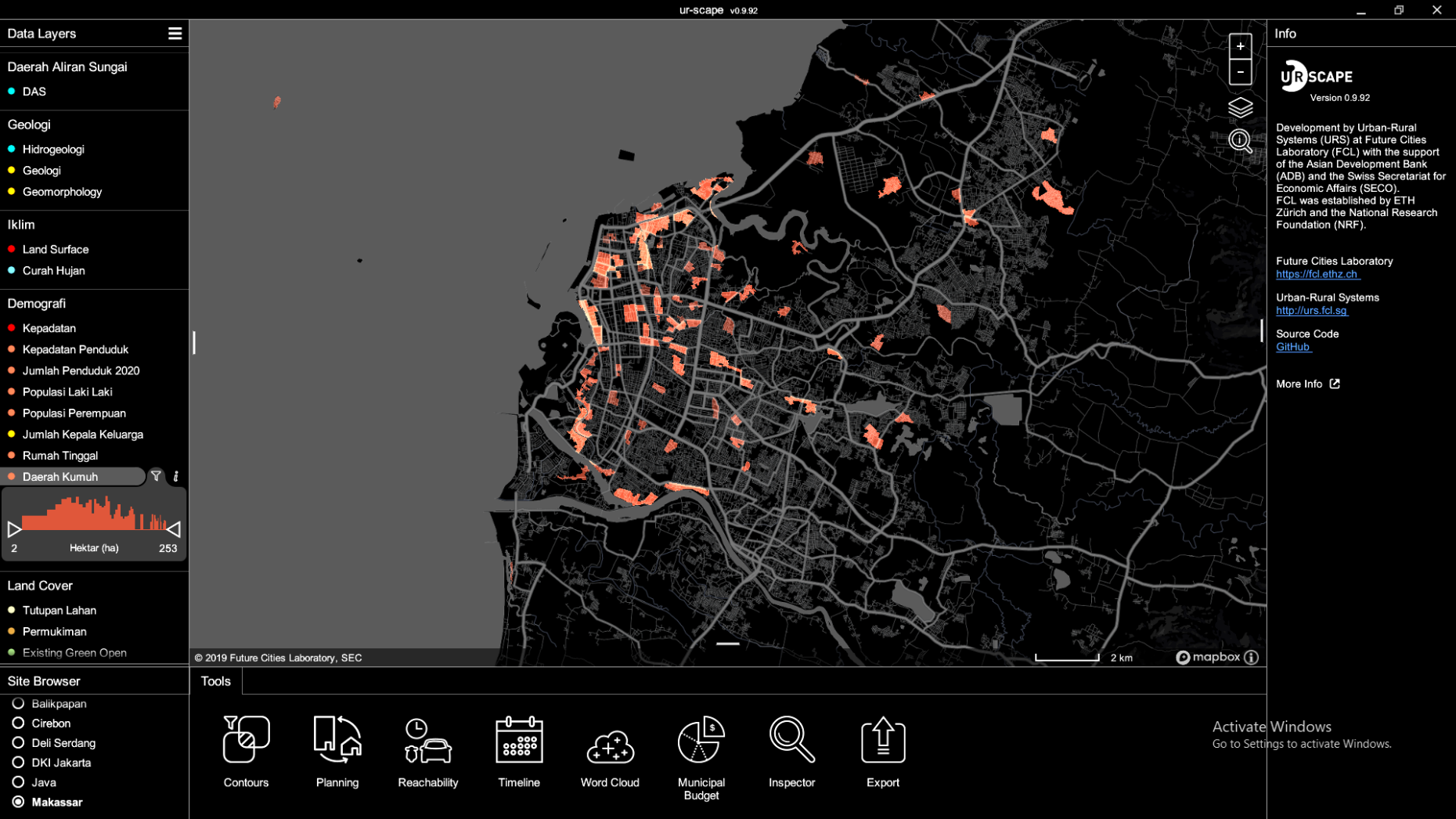Spatial data analysis for inclusive development

In the course of urban transformations, developmental challenges and natural hazards, the urban poor often bear the brunt of the negative impacts. To ensure an inclusive and resilient city, the challenges and needs of the urban poor need to be foregrounded and managed.
To devise targeted planning strategies and policies, effective data gathering and analysis are firstly needed to help planners and stakeholders better understand issues on the ground. However, data relevant to the urban poor is often scarce and unreliable, which calls for new data analysis approaches. Through experiments and heuristics, it is possible to associate, intersect, develop proxies, estimate and uncover patterns, and use the results for evidence-based planning.
In this project, Future Cities Laboratory (FCL) lends its expertise in spatial data analysis on the ur-scape platform to support a larger multidisciplinary team in developing plans to advance inclusive and resilient urban development targeted at the urban poor. FCL’s contribution in spatial data analysis will enable an evidence-based approach in the development of inclusive conceptual planning and strategies for the city of Makassar and Cirebon in Indonesia.
The process of data analysis (gather and experiment) is part of FCL’s Design-Research (DR) approach, which includes seven actions: sense, scope, gather, experiment, situate, theorise and narrate. The DR approach combines design practice and scientific research. Design involves transdisciplinary creativity, stakeholder participation and visual communication; while research offers evidence-based insights, system perspectives and quantitative tools. In combination, design and research can draw out the conflicting impulses underlying complex problems such as function, profit, ethics, comfort, convenience, identity, security, fear, satisfaction, aspiration and desire. In so doing, DR aims to bring these impulses into dialogue to produce balanced solutions and empowering visions.
In this project, FCL’s data analysis in Makassar and Cirebon in Indonesia starts with examining available data and assessing its coherence, completeness, timeliness, format and accessibility. The next step of visualising data and enabling access to data sources promotes understanding of the role of data in forming solution spaces and formulating feasible goals. Finally, the team analyses data through controlled experiment, association, data intersection, developing proxies, plausible estimates, and search for patterns.
The “Spatial data analysis for advancing inclusive and resilient urban development targeted at the urban poor” project is funded by the Asian Development Bank (ADB) under the framework of Liveable Settlements Investment Project (LSIP).